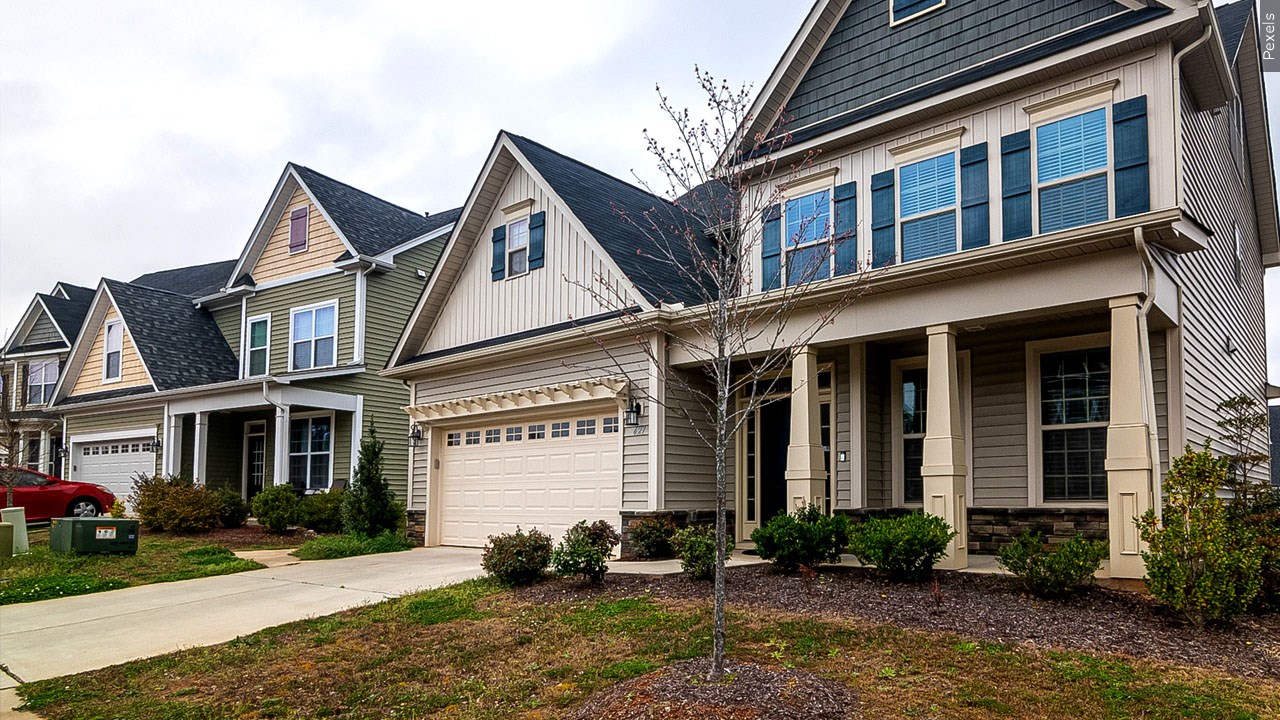Some Jackson County senior citizens are pushing for tax relief following a three-year effort by residents out of the Cresswind Community. Three bills on the ballot Nov. 5 could reduce the amount of property taxes seniors would have to pay in coming years.
Why It’s Newsworthy: Amid soaring housing prices and increasing senior poverty rates, a group of Jackson County residents aged 62 and older are rallying behind three long-awaited tax relief bills.HB 1003, HB 1004 and HB 1461 would bring various homestead tax exemptions to those 62 and older, providing relief at a time when prices are high. The graph below details each exemption.
Senior exemptions on the Jackson County ballot by Holland Mowry
As noted, residents in the Commerce and Jefferson School Districts have different school-related homestead exemptions on their ballots.
Mark Sulkin is a 74-year-old Cresswind Resident and proponent of the bills.
“There are a lot of hurting people,” he said.
While Sulkin is a transplant from Illinois, he’s lived in Georgia for two years, watching home values and taxes inflate.
“The expansion is endless, and every year you start building homes, they don’t go down in price, they go up,” he added.
If approved, residents must file an initial application with the Jackson County Tax Assessor’s Office to be considered for an exemption. If the local county exemptions pass, seniors would have between Jan. 1 and April 1, 2025 to apply. Residents cannot claim an exemption if they have already filed one for another property in Georgia or any other state.
Between 2013 and 2023, Jackson County’s population grew by over 28,000 people, and as the population grows, so does the demand for housing. In July 2024, the average home value across the County sat just over $375,000, a 112% increase from 2016.
In some areas like Hoschton, where Cresswind is located, prices are up to $490,000.
However, millage rates are the lowest they’ve been in over 10 years — but even with lower rates, for some, the rising value of homes is too steep to make a difference.
For example, in 2016, a taxpayer with a median-priced home would owe approximately $2,288 in county and school taxes. That same person in 2024 would owe approximately $3,721 in taxes, despite lower millage rates and no updates to their property.
Calculating Difference in Property Taxes: 2016 vs. 2024 by Holland Mowry
“People who bought at a very low level, their property values have doubled, meaning their taxes have doubled,” Sulkin said. “Not everybody has expendable cash. People from other parts of Georgia have paid very low property taxes because the seniors were exempt from school taxes. Now they come here and it’s sticker shock.”
In counties like Forsyth, Cobb and nearby Hall, Oconee and Gwinnett, seniors can apply for a total exemption from all school taxes. Each county has different age, income and property rules. Barrow is voting on a similar total school tax exemption this November.
Currently, Jackson offers a $10,000 exemption for those 62 and older and an additional $40,000 exemption upon turning 65. Surrounding counties, like Madison and Banks, offer homestead exemptions in amounts similar to or less than Jackson.
In 2022, anywhere from 6 to 8 million Americans aged 65 or older were in poverty. According to research, as people age, poverty rates steadily increase — especially for those above the age of 80. Currently, the percentage of seniors that make up the total number of impoverished Jackson residents is higher than Georgia’s state average. This uptick started in 2019, approximately two years before Jackson significantly lowered their school and M&O taxes.
Around three years ago, HB 1003, HB 1004 and HB 1461 were first proposed by a five-person committee out of Hoschton’s Cresswind Community. Sulkin claims the idea spawned after Kolter, the developer of Cresswind, told residents they’d work with the government to get a senior homestead exemption.
“But that never happened,” he recalls.
After some convincing by the committee, local politicians Chad Bingham, Ty Clack and Phillip Brown joined the efforts.
Clack was a member of the Jackson County Board of Education but resigned to run for District 3 Commissioner this November. Bingham formerly held the District 3 seat but resigned to run for Chairman of the Board of Commissioners (BOC) in March, but ultimately lost. Brown was elected as Jackson County Schools superintendent in 2022.
“They were the ones that were really the impetus of this,” Sulkin said. The bills passed through Georgia’s House and Senate this May and are now gaining support across Jackson County ahead of Tuesday’s election.
“The seniors here feel, listen,” Sulkin began, “I raised a family. My kids went to school. I paid the appropriate taxes. And it’s only fair that the next generation takes over. We did our part, and now it’s up to you to do your part. And that’s, you know, how people feel. And it’s supported, that feeling is supported because so many other counties have tax relief.”
How the Homestead Exemptions Would Work
For a 64-year-old homeowner in the Jackson County School District, HB 1004 would reduce school-related property taxes. For a home valued at $250,000 in 2025, Georgia’s tax system would normally assess this property at 40% of its fair market value — $100,000. Without exemptions, this homeowner would pay school taxes on that amount.
However, under HB 1004, the homeowner would receive a $40,000 exemption, reducing the taxable value to $60,000. At the 2025 millage rate of 15.395, this would lower their school tax bill from $1,539.50 to $923.70.
As the homeowner ages, the exemption increases. At age 65, the exemption would rise to $75,000, and by age 70, it would reach a maximum of $125,000.
HB 1461 offers additional relief, this time for county taxes. In unincorporated Jackson, the M&O rate is 8.28 mills, while incorporated areas have a rate of 9.294 mills. At age 64, the homeowner would receive a $10,000 exemption for M&O taxes, reducing the taxable value to $90,000. At age 65, this exemption would increase to $25,000.
HB 1003 introduces a “floating” exemption, which freezes the property’s assessed value at 2025 levels, applied to all ad valorem school tax. As home prices rise, seniors would be exempt from paying taxes on the inflationary increase.
For example, if the same homeowner’s property increases in value to $300,000 by 2028, they would receive a $50,000 exemption, covering the difference between the 2025 and 2028 assessed values.
Holland Mowry is a senior majoring in journalism at the University of Georgia.









Show Comments (0)